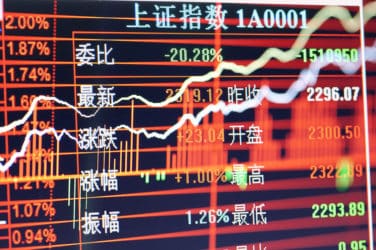
As the European sovereign debt crisis continues to subdue the markets and weigh heavily on the profit margins of financial services firms, cost savings are being sought in many places.
One such area is to outsource your trading infrastructure. As trading becomes ever more fragmented, and with many emerging venues offering increased liquidity, firms are being expected to connect faster, quicker and more efficiently to more and more markets around the world. However, co-location, proximity hosting, connectivity and managing applications in exchanges and data centers in far flung places around the globe does not come cheap.
Interactive Data, which provides outsourced ultra-low latency trading infrastructure connectivity that links the world’s main electronic markets as well as many emerging market venues through its 7ticks service, is one such provider that offers firms a one-stop shop in allowing its clients to link in to this vast array of global exchanges. Interactive Data also provides real-time market data feeds, which, combined with the outsourced infrastructure, it says, gives it a “unique” offering.
“Trading firms are looking at more access to more markets around the world,” Rob Lane, European business manager, trading solutions, at Interactive Data, told Markets Media.
“Prime brokers on the sell side, for example, are realizing that they can make cost savings by outsourcing their infrastructure. Institutions are under a huge amount of pressure from a total cost of ownership point of view so what they are saying is if they can get this infrastructure from someone they trust then they can concentrate on talking to their clients.
“For example, the BME [the Bolsas y Mercados Españoles, Spain’s incumbent exchange based in Madrid] is opening a co-location facility at end of year. Brokers would potentially need to set up in Madrid. This is an additional cost. But these firms could come to someone like Interactive Data and we would do that for a reduced cost. It is a no brainer, as they would then have that infrastructure in place and they would stop forking out all this money on connectivity and hosting.”
Margins for financial firms are becoming more and more squeezed and they are certainly examining ways to cut costs and remain profitable in the current climate.
“The global economy will continue to flounder in 2012 as the crisis in western Europe casts a long shadow,” said Jeanne Capachin, vice-president of IDC Financial Insights, a technology research consultancy. “As a result, many banks are taking a closer look at their expense budgets as they consider new IT investments.”
Due to the increased adoption of electronic trading in Asia, Interactive Data is expanding its presence there to offer greater connectivity for its clients to and from the region. It has recently set up a Hong Kong ticker plant, which reduces the latency in Asia of its consolidated global feed.
“There are more liquidity forms appearing in Asia,” said Lane at Interactive Data. “Our real-time data feeds and the trading infrastructure we offer is what firms are looking for.
“Having a one-stop shop means that these firms can concentrate on their business and they can get to market quicker on new venues as they know a firm like us will have to have those venues.”
Emmanuel Doe, president of Trading Solutions Group for Interactive Data, added: “With the growth of electronic trading in Asia and higher data volumes globally, clients in Asian markets have an increasing need for cost-effective, real-time market data and delivery. We continue to expand our electronic trading services in Asia and elsewhere throughout the world to meet these requirements.”




